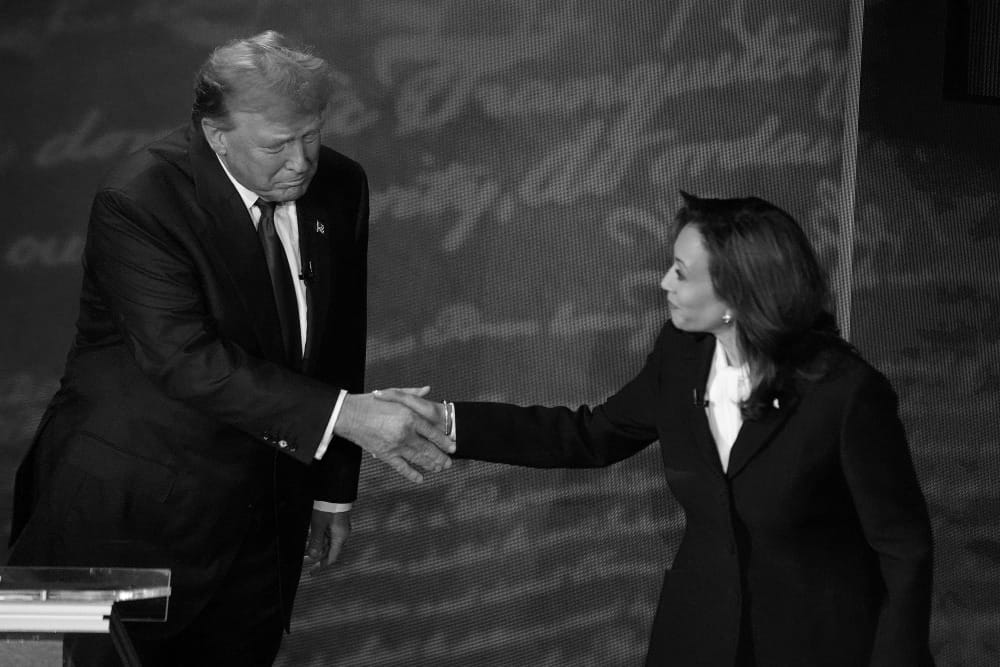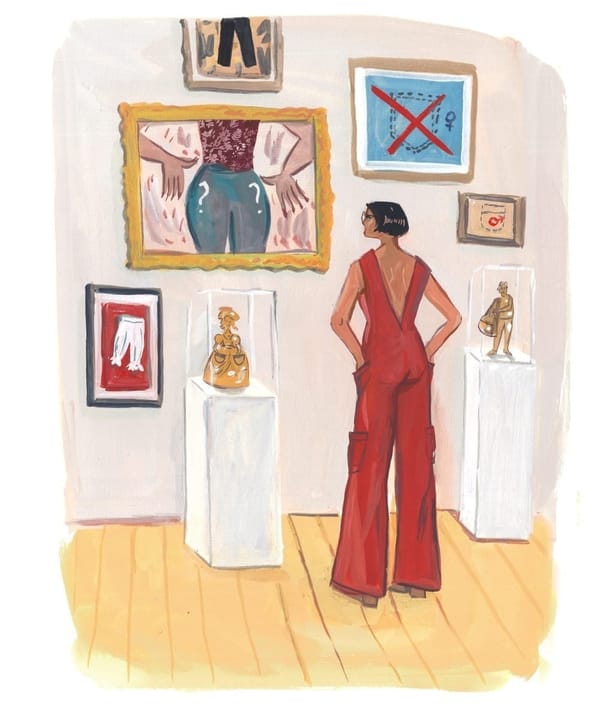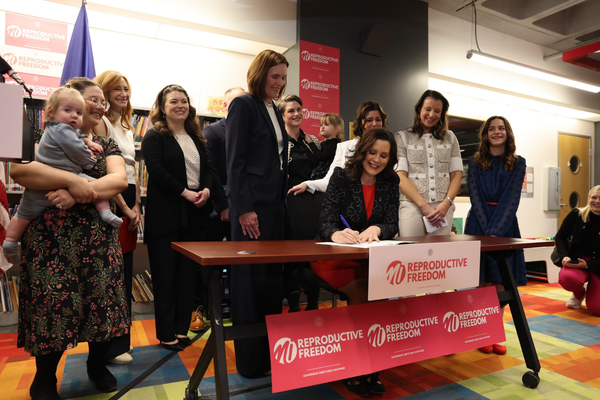Good Behavior, Bad Behavior and the Usual Dose of Sexism
At Tuesday's debate, the few personal attacks Trump had prepared for Harris were noticeable for their studied lack of sexism—at least outwardly.

The Persistent is available as a newsletter. Sign up here to get it delivered to your inbox.
Donald Trump has gotten (slightly) wiser since 2020.
That might seem like a hot take after he blundered and lied his way through a badly-received debate performance on Tuesday night—even a Fox News voter panel immediately following the event admitted that Harris had won—but it’s true.
On stage, the former president appeared without his usual armor: a penchant for nicknames and name-calling.
Absent were the claims, made by Trump in the past, that Harris is “low-IQ” or “dumb.” Gone were the questions about her “mental capacity.” As the vice president steamrolled Trump with policy specifics and details pulled from her various roles as attorney general, senator, and vice president, it became obvious that attacking her on those grounds would be a very bad idea. Because if the person standing in front of him, ripping his arguments to shreds, was “low-IQ,” then what on earth would that make him?
And what of the sexist, grab-’em-by-the-pussy Trump the world has been privy to so many times in the past? Well, he wasn’t on full display, that’s for sure.





